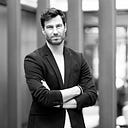New Luxury — A changing mindset of a new generation
Today, the definition of luxury is changing more than ever. At one time, the luxury industry was strictly tied to notions of price, craftsmanship and the traditional trappings of status and wealth, but today luxury is more complex and dynamic than the mere acquisition of rare and expensive items. Luxury as a global component of culture is influenced, more than other components, by the great global movements: globalization, digitization, the concept of the “Asian century,” the commitment to responsibility and younger consumers.
According to a Bain and Company estimate, by 2025 one fifth of all luxury purchases will be online. Almost half (45%) of global buyers will be members of Gen Z and Gen Y, and China, as the most digitized market, will account for 40 percent of these buyers. With this generational shift, the demand for responsible and sustainable consumption will also increase: 80 percent of luxury customers, and especially millennials, prefer brands that act in a socially responsible manner.
The dovetailing of these movements, along with the new understanding of luxury among young consumers, also leads to new definitions of what luxury is. Thus, brands are now faced with new challenges and will have to get creative in order to meet the increasingly complex demands of consumers. Here are just a few of the approaches taken by luxury brands:
Collaboration & co-creation
Fashion designer Virgil Abloh and Gorden Wagener, Chief Design Officer of Mercedes-Benz, have reinterpreted the Mercedes-Benz G-Class with the “Off-Road Vehicle Project.” The collaboration of these two iconic personalities aimed to merge the world of fashion and art with that of the automobile as a new vision of luxury defined by the exchange of ideas and disciplines.
Storytelling
About a decade ago, the hype surrounding streetwear became so influential in the fashion market that even luxury brands couldn’t resist it. Moreover, they developed new types of collaboration with streetwear brands and icons as a guaranteed way to gain attention. Louis Vuitton’s decision to hire professional skateboarder Lucien Clarke as the designer for their first skate shoe illustrates this paradigm shift — from a highly delineated understanding of luxury that connoted elitism, to one in which streetwear and luxury are no longer opposing concepts.
Holistic experiences
“Gucci Garden,” an immersive, multi-sensory museum featuring thematically curated and trend-inspired rooms, interweaves the brand’s fashion history and its products and thus brings them into new, accessible contexts, such as a selfie room, a store with exclusive products, a creative lab and a restaurant. Gucci Garden is a good example of this intensified linking and staging of products in a larger thematic context — the ideal way to connect the analog with the digital.
Digital linking
Burberry was a pioneer and created personalized experiences with its first so-called “Social Retail Store.” At the entrance, visitors can use the interactive storefront window to become part of the staging by taking personal snapshots to share with the community. In addition to QR codes distributed in the store, which provide additional digital information, a digital companion provides visitors with store tours, additional product information, bookings for appointments in the store as well as events or table reservations in the in-store café, all via a WeChat mini-program. The more the user interacts with the app, the more comprehensive the experience becomes.
A new mindset
There need to be new ways to reach the younger luxury generation. Products must be linked more closely to experiences. The “New Luxury” is not just about what you wear, but also about what you know. The paradigm is shifting from belonging to being, from exclusivity to inclusivity, and places experiences above material goods. The “New Luxury” consumer is not just buying a product, but a lifestyle or a community; he or she wants to be inspired by brands, and values living a more meaningful life over materialism.
Click here for the German version of this article.
About the author
Mathias Ullrich is Managing Director at LIGANOVA, innovation leader in the field of brand & retail experiences in the phygital area. Over the past ten years, as an industrial engineer, Mathias Ullrich has advised clients from the brand retail sector on positioning, growth and digital transformation. At LIGANOVA, he heads the Experience Solutions division where, at the intersection of people, brands and products, he designs retail locations and experience areas for premium global brands from the luxury, sporting goods, automotive, fashion and retail sectors.
***

